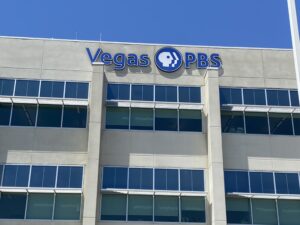6:06
Brief
Undercurrent
Nevada one of the most at-risk states for ‘legal looting’ by private equity firms

“The private equity business model is built on pooling money from big investors like public pensions to take over companies and quickly restructure them, often in ways that are harmful to workers, patients, customers, residents, and ultimately state and local economies,” according to the report. (Getty Images)
Nevada is one of the states most vulnerable to the profit-hungry influence of private equity firms, according to a new analysis by a national watchdog group.
Nevada ranked 5th overall in the Private Equity Stakeholders Project’s Private Equity Risk Index, which the group launched this week. Only New Mexico, North Carolina, Arizona and Florida are considered more at risk.
The housing industry in Nevada is particularly at risk, earning a “very high risk” score of 94 out of 100. Only Georgia and Arizona fared worse. Private equity investment often leads to increased rental costs, housing market disruption and unsafe living conditions, according to PESP.
Nevada has one of the highest shares of single-family homes purchased by corporate investors over a five-year period, according to PESP.
PESP recommends states combat the influence of private equity by passing legislation to prohibit evictions of tenants except for specific reasons (such as non-payment of rent), cap annual rent increases statewide or allow local jurisdictions to cap them, and create a mandatory landlord registry to identify corporations with multiple holdings.
Bills for all three recommendations have been introduced in recent sessions but either died in the Nevada State Legislature or were vetoed by the governor.
Private equity’s hold is growing across myriad industries.
“The private equity business model is built on pooling money from big investors like public pensions to take over companies and quickly restructure them, often in ways that are harmful to workers, patients, customers, residents, and ultimately state and local economies,” states PESP. “The focus is on turning a quick profit for investors regardless of the risks and consequences for communities across the country.
The watchdog group ranked Nevada at “high risk” of private equity influence on public pensions and health care and “medium risk” of private equity influence on workers and jobs.
University Medical Center and Culinary Health Fund leaders last month told a committee of state lawmakers they are already feeling the effects of corporate consolidation and private equity investment.
“I was looked in the eye by this company and told our 10% profit margins are not enough; we had to be at 20%,” said UMC CEO Mason Van Houweling.
PESP estimates that companies controlled by private equity firms employ more than 11 million workers nationwide, own millions of homes, and are increasingly moving into critical industries like health care.
“Let’s call out private equity’s abuse for what it is: legal looting,” said U.S. Sen. Elizabeth Warren (D-Mass.) in a statement praising the risk index. “Together, we’re taking on this trillion-dollar, behemoth industry that’s hurting working people and sucking money out of the rest of the economy.”
Our stories may be republished online or in print under Creative Commons license CC BY-NC-ND 4.0. We ask that you edit only for style or to shorten, provide proper attribution and link to our website. AP and Getty images may not be republished. Please see our republishing guidelines for use of any other photos and graphics.



